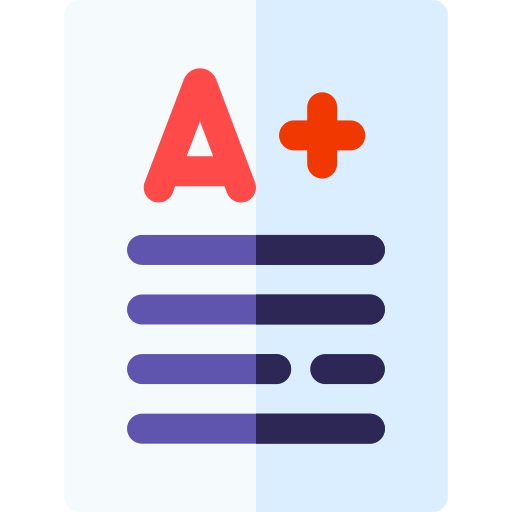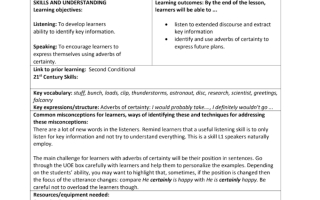حل الوحدة الرابعة انجليزي للصف العاشر عام فصل اول
Link to prior learning
21" Century Skills
Key vocabulary: grow, experiments, oxygen, gravity, vegetables, rocket, floating, crew, experiments, conditions
Key expressions/structure : Compound nouns; space station, space mission, plant seeds
Common misconceptions for learners, ways of identifying these and techniques for addressing these misconceptions: Compound nouns can prove difficult for learners to spot. However, using the UOE box and providing everyday examples will help learners to understand and identify them. Although there is no clear set rule on how compound nouns are written they can take three forms Open compounds are when the two nouns are written separately, for example: school bus. Closed compounds are when the two nouns are written together, for example: flowerpot. Hyphenated compounds are when the nouns are joined together by a hyphen, for example: English-language One way to decide if a hyphen is necessary is to see if the phrase might be ambiguous without it. "English-language learners." Without the hyphen, a reader might think we are talking about English people who are learning any language rather than people who are learners of the English language
Resources/equipment needed
Course book page 51 - 52
Workbook page 39 UNIT 4 LESSON 9 TASKS/ACTIVITIES
Put learners in pairs. Tell learners that they will be taking a trip to the internatio one month. Ask them what they should take with them. They should think of
Food
Entertainment movies, books, video games, etc
Clothes
Give learners 3-4 minutes to talk about it with their partners. Then, elicit a full class discussion
Resources / Main activity
Reading : Activity 1
Coursebook page 51
. Explain to learners that they are going to read a newsletter about the ISS. (International space station
. Ask learners to look at the 3 title options
. Using a show of hands, ask learners what they think they newsletter will be about
. Learners to scan through text and decide upon the title. You could have learners do this in a group so that they each scan through a paragraph and feedback to their group what it was about and together they decide upon the title
. Learners complete activity
CORE
Feedback Invite learners to share their answers and have them explain why they feel the title they chose was most appropriate
Link to prior learning : Lesson 9
21" Century Skills
Key vocabulary : grow, experiments, oxygen, gravity, vegetables, rocket, floating, crew, experiments, conditions Key expressions/structure: Compound nouns; space station, space mission, plant seeds
Common misconceptions for learners, ways of identifying these and techniques for addressing these misconceptions: Compound nouns can prove difficult for learners to spot. However, using the UOE box and providing everyday examples will help learners to understand and identify them. Although there is no clear set rule on how compound nouns arule on how compound nouns are written they can take three forms Open compounds are when the two nouns are written separately, for example: school bus. Closed compounds are when the two nouns are written together, for example: flowerpot. Hyphenated compounds are when the nouns are joined together by a hyphen, for example: English-language. One way to decide if a hyphen is necessary is to see if the phrase might be ambiguous without it. "English-language learners." Without the hyphen, a reader might think we are talking about English people who are learning any language rather than people who are learners of the English language
Resources/equipment needed
Course book page 52 Workbook page 40 Post-it notes
UNIT 4 LESSON 10 TASKS/ACTIVITIES
Starter
. Play the Memory game
. Start the game by saying, "If I went to space, I would take a book
3. Gesture for the next learner to repeat the sentence and when they finish say "and?" so that they understand that they have to continue the list
. Move on to the next learner and continue the game demonstration with the class, allowing the list of items to increase in number
Resources / Main activity
Workbook: Activity 2
Workbook page 40
. Elicit from learners what they can remember from the last lesson about compound nouns
. Put learners in pairs
. Tell learners that they can use their books to help
. Learners should match one word from each cloud to make a compound from the text
. Do one with the class. Use "space mission." Explain to learners that they should write the word on the write-on lines provided
Key vocabulary : Unit 4
Key expressions/structure: Unit 4
Common misconceptions for learners, ways of identifying these and techniques for addressing these misconceptions: Learners may feel that a review lesson isn't necessary or useful. However, the activities are designed to reinforce previously taught skills and language in a stimulating and achievable way. The activities do not follow a specific order to the lessons taught. The vocabulary is not specific to order of lessons, instead the vocabulary used in each activity may be from more than one lesson. This is to encourage transference and to help reinforce learners' comprehension and correct usage of the key structures
Resources/equipment needed: Coursebook page 53 Board
UNIT 4 LESSON 11 TASKS/ACTIVITIES Resources Starter
Books closed. Put learners into small groups. Set a time limit of, say, 3 mins. As a group they need to write down as many thing as they can remember about the unit. Build a list on the board
Resources / Main activity
Writing : Activity 1
Coursebook page 53
. Write the following on the board: might probably, certainly, may definitely
. Ask learners to put them in order from least certain to most certain
. Elicit some true examples from learners and write on board. Pay attention to the position of the adverbs in the sentence
. Individually, learners complete activity. In pairs, learners check answers
CORE
Feedback
Elicit answers with class
Possible answers
a Everyone is definitely at home now
b My teacher might have a pet
c He probably eats too much fast food
d I would certainly give you the money if I had it
e The may not come tomorrow
Reading : Activity 2
Writing : Activity 4
. Books closed. See if learners can remember anything about the short biography in Activity
. Ask questions for support. 2. Ask learners to refer to notes they made from Activity . Ask them some questions. Try to elicit use to/would in the answers. Write some examples on the board
. Using the text in Activity 2 as a model, learners write a short biography
. Go around and monitor. Highlight errors and encourage learners to self correct
CORE
Feedback
Allow learners to mingle and read each other's biographies. Praise good use of target language
Answers
Learners' own
Differentiation Support
Prepare a similar biography and cut it up into sentences. Learners rearrange sentences into correct order
Differentiation Stretch
When learners have written first draft, they pass to a partner to read, underline errors and suggest improvements. The draft is passed back for learners to correct and improve
Reading : Activity 5
. Perform a selection of actions andaske learners to say how you are doing them (slowly, quickly, happily, sadly
. Invite learners to do the same for the class
. Refer learners to the box. Elicit the adverbial form
. Individually, learners complete activity
. in pairs, learners check answers



